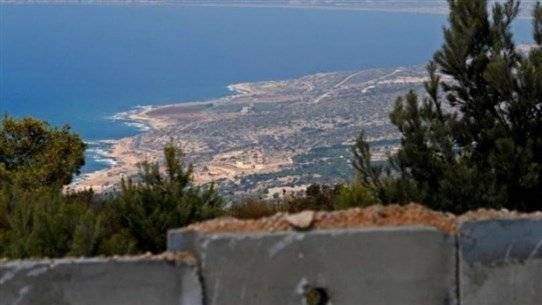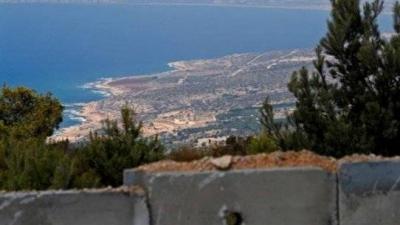The executive authority, both in the presidency and the government, shows no intention of taking any procedural steps to translate the warning stances issued upon the arrival of the ENERGEAN power ship to the Karish field, which is located on line 29 (a large part of which is south of the line). Meanwhile, it faces pressure to amend the border decree 6433 to ensure that Lebanon's oil rights are not compromised. The Israeli defense minister hastened to assert that the gas extraction platform lies within Israel's jurisdiction and not in the disputed area with Lebanon, implying that it does not exceed line 29 in an attempt to respond to the warning issued by Lebanese authorities. It is worth noting that Foreign Minister Abdullah Bou Habib revealed that "it is not known whether the drilling is within the occupied Palestinian territories or in the disputed Lebanese borders."
In the meantime, the foreign minister disclosed that communication with the American mediator Amos Hochstein had begun, although the offer he made during his recent tour was a zigzagging line that did not grant Lebanon the full line 23, leaving part of the Qana field outside line 23 after slightly expanding Lebanon's share, while simultaneously cutting a part from Block 8. Hence, Lebanese authorities have kept their final stance on the proposal and did not rush to express agreement. Only former minister Michel Najjar seems, at this time, "grateful" and "relieved" for what he did before leaving the Ministry of Public Works, after the campaign organized against him aimed at pushing him to sign the decree when Hassan Diab's government was in a caretaker phase, which at the time prevented the cabinet from convening to approve the decree.
The amendment includes a reference that "the line of the southern maritime border of Lebanon extending from point 18 to point 23 is not based on any technical foundation and does not comply with international law provisions. The technically and legally sound border line is the one that starts from the Ras al-Naqoura point and adopts the median line method, without accounting for any impact from the rocks adjacent to the occupied Palestinian coast, especially the Takhleet rock." The draft decree also mentions that "this line would convert the Karish field and Block 72 from purely Israeli areas to disputed areas, thus obliging the Israeli adversary under international law to cease all exploration activities in it and thereby preserving Lebanon's rights to its oil and gas resources."
In reality, the path taken by the Free Patriotic Movement team since the formation of the negotiating delegation in October 2020 has made it the most criticized for its insistence on holding onto the file to be the most concerned party, after the Speaker of the House, Nabih Berri, had been the official front for negotiations for years. The presidency, with the formation of the negotiating delegation, was accused of bypassing constitutional provisions, specifically Article 52 of the Constitution, when the Secretary General of the Council of Ministers, Judge Mahmoud Makiyeh, addressed the General Directorate of the Presidency with a letter, reminding it that Article 52 of the Lebanese Constitution, as amended by the Taif National Accord Document, stipulates that "the President of the Republic shall negotiate in the conclusion of international treaties and their ratification in agreement with the Prime Minister. It shall not become ratified except after the approval of the Council of Ministers, which shall inform the Parliament of it when the interest of the country and the safety of the state permit." He pointed out that "following the above, any agreement or treaty or document, and prior to the approval of any of them and their ratification by the competent Council of Ministers, shall have the negotiation and the mandate for negotiations regarding it be by mutual agreement between the President of the Republic and the Prime Minister, and that any alternative direction constitutes a clear and explicit violation of a constitutional text with all resulting consequences."
The presidency then refrained from signing the exceptional approval, although hundreds of such approvals had been signed during Hassan Diab's government and before it, citing that "the draft decree is based on the approval of the Council of Ministers, which has not occurred, as it should be in a legally sound context according to the opinion of the Legislation and Consultations Authority No. 71 dated 17/2/2021." The Free Patriotic Movement team has found itself under scrutiny once again due to the procrastination in signing the draft decree to amend decree 6433, which was revealed to have been returned by the General Secretariat of the Council of Ministers to Defense Minister Maurice Sleem (aligned with the presidency) immediately after the formation of Najib Mikati's government before being submitted to other concerned ministers, but it remained there.
In an attempt to extract the decree from the political tug-of-war within the government, Deputy Hassan Murad submitted an urgent proposal to the Parliament to amend Article 17 of Law 163/2011, including a map and coordinates delineating the southern maritime boundaries and exclusive economic zone to the south, according to the line drawn by the Hydrography Department of the Army.




